Last Updated: July 4, 2025
The New Era of Immigration: Stricter Rules, Higher Costs, But Hope Still Exists
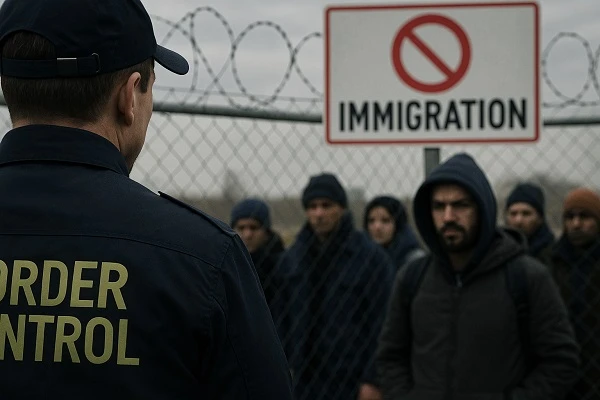
In 2025, immigration policies across the world have taken a sharp turn toward tighter controls, higher costs, and greater scrutiny. From Pakistan to the United States, the United Kingdom to Australia, countries are revising immigration laws, creating stricter pathways for foreigners who wish to enter or remain. This shift has left many current and prospective immigrants anxious about their future.
A Global Trend Toward Tighter Immigration
Across the globe, governments are enforcing new immigration policies that emphasize border security, national identity, and economic protection. Pakistan, for instance, has set a final deadline for all undocumented foreigners to leave the country by April 30, 2025. The government insists that although Pakistan has hosted millions of refugees for decades, it must now prioritize law enforcement and national security.
In the United States, immigration enforcement has intensified under executive orders that target sanctuary cities and fast-track deportations, even of long-time legal residents. Recent cases where U.S. citizens and legal immigrants were deported highlight a growing culture of fear among immigrant communities.
The United Kingdom has implemented significant changes, including higher visa fees and new salary thresholds for skilled workers. Similarly, Australia has announced plans to raise student visa fees, aiming to better regulate migration through the education sector.
Why This Shift Is Happening
The global push for stricter immigration controls stems from multiple factors:
- Economic Pressures: Governments want to ensure that immigrants are self-sufficient and economically beneficial to the host country.
- National Security: In an increasingly unstable world, many nations are tightening borders to prevent potential threats.
- Political Strategy: Anti-immigration rhetoric often wins votes, especially during economic downturns or times of social unrest.
While the practical and political reasons are clear, the emotional toll on individuals and families facing uncertainty is profound.
The Human Cost
What is often lost in the headlines is the human story: families separated, dreams shattered, and communities weakened. Legal residents who have lived for decades in a country now find themselves vulnerable over minor infractions committed years ago. Students who hoped to build a future abroad face skyrocketing fees that place education out of reach.
The message to many is harsh: even if you play by the rules, you may no longer be safe.
But There Is Still Hope
Despite the tightening controls, not every country is closing its doors. Some nations recognize the enormous benefits immigrants bring to their economies, cultures, and innovation sectors. These countries are adapting immigration policies to attract global talent. Here’s a look at some countries that remain welcoming to immigrants in 2025:
Canada: A Model of Openness
Canada has long been known for its welcoming stance toward immigrants, and this continues into 2025. The country aims to bring in over 485,000 new permanent residents in 2025 alone, focusing on skilled workers, family reunification, and refugees.
Visa Type: Express Entry
For skilled workers, Canada offers the Express Entry system, a points-based program that ranks applicants based on factors like age, education, work experience, and language skills. The highest-ranking candidates are invited to apply for permanent residency.
Eligibility
- Age: 18 to 35 (more points are awarded for younger applicants)
- Language Proficiency: Prove proficiency in English or French (via IELTS or TEF exams)
- Work Experience: At least 1 year of skilled work experience in the past 10 years
Application Process
Applicants must first create a profile in the Express Entry pool. If invited, they can then apply for permanent residency. Processing times are typically 6 months or less.
Fee
The application fee for Express Entry ranges from CAD 1,040 to CAD 1,500, depending on the number of applicants (individual or family).
For more details, visit the official Canadian immigration website: Canada Immigration and Citizenship
Germany: Targeting Skilled Workers
Germany continues to expand its "Skilled Immigration Act," making it easier for qualified non-EU professionals to work and live in the country. Germany faces labor shortages, particularly in fields like healthcare, IT, and engineering, which have prompted a demand for foreign talent.
Visa Type: Skilled Worker Visa
The Skilled Worker Visa is aimed at professionals with a university degree or recognized vocational training.
Eligibility
- A recognized university degree or vocational qualification
- Proof of a job offer from a German employer
- German language proficiency (depending on the role)
Application Process
The process involves submitting an application for a work visa at the German embassy or consulate. Applicants must provide proof of their qualifications, job offer, and language skills.
Fee
The visa fee is approximately EUR 75 for a short-term visa and EUR 100 for a long-term visa.
For more details, visit the official German immigration website: Make it in Germany
Portugal: An Emerging Destination for Digital Nomads
Portugal has recently become a favorite among digital nomads, remote workers, and entrepreneurs, thanks to its relatively relaxed immigration policies and affordable cost of living.
Visa Type: Digital Nomad Visa
Portugal's Digital Nomad Visa is a new initiative designed to attract remote workers who wish to live in the country while working for foreign companies.
Eligibility
- Proof of income: You must earn at least EUR 2,800 per month (this amount may change annually).
- Proof of employment: You must show that you are working remotely for a foreign employer or have clients abroad.
Application Process
Applicants can apply online or at a Portuguese consulate. The application requires proof of income, employment status, and health insurance coverage.
Fee
The fee for the Digital Nomad Visa is approximately EUR 90 for the application and additional costs for residency permits.
For more details, visit: Portuguese Immigration and Borders Service
Japan: Quietly Opening Up to Skilled Workers
Japan, traditionally known for its cautious immigration policies, has gradually been opening up to foreign workers, especially those in high-demand sectors like IT, engineering, and healthcare.
Visa Type: Specified Skilled Worker Visa
The Specified Skilled Worker Visa allows foreign workers to enter Japan to fill labor shortages in specific industries.
Eligibility
- Job offer in a field such as healthcare, construction, or IT
- Basic proficiency in Japanese (level N4 of the Japanese-Language Proficiency Test)
Application Process
Applicants must secure a job offer from a Japanese employer and meet the language requirements. The visa is valid for up to 5 years, with the option to apply for permanent residency after a few years.
Fee
The application fee for a specified skilled worker visa is approximately JPY 4,000 (USD 30).
For more details, visit: Japanese Ministry of Justice
Conclusion: Cautious Optimism
Yes, 2025 marks a new era of stricter immigration policies in many parts of the world. The rules are harder, the costs are higher, and the emotional toll is heavier. Yet, it’s not a time to give up hope. Opportunities still exist for those willing to adapt, plan carefully, and pursue the right pathways.
Immigration has always been a journey of courage, sacrifice, and resilience. Today's global environment may be tougher, but for the determined, new doors continue to open. The world still needs dreamers, doers, and builders. If you are prepared, the right destination is still waiting for you.
You May Also Like:

Low-Cost Drones Made in Pakistan: A New Era for Smart Agriculture...

Pancreatic Cancer mRNA Vaccine: A Ray of Hope Amidst a Deadly Disease...
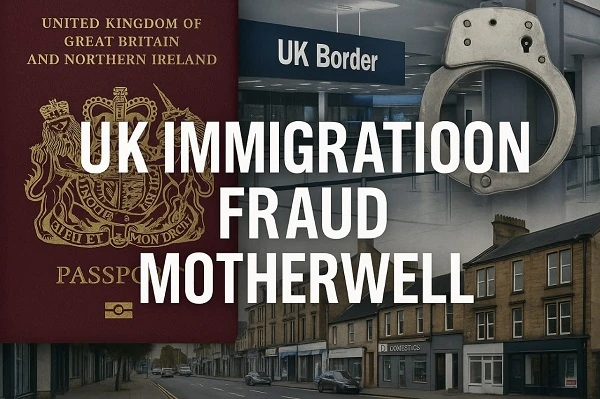
UK Immigration Fraud Uncovered in Motherwell: A Deep Dive...
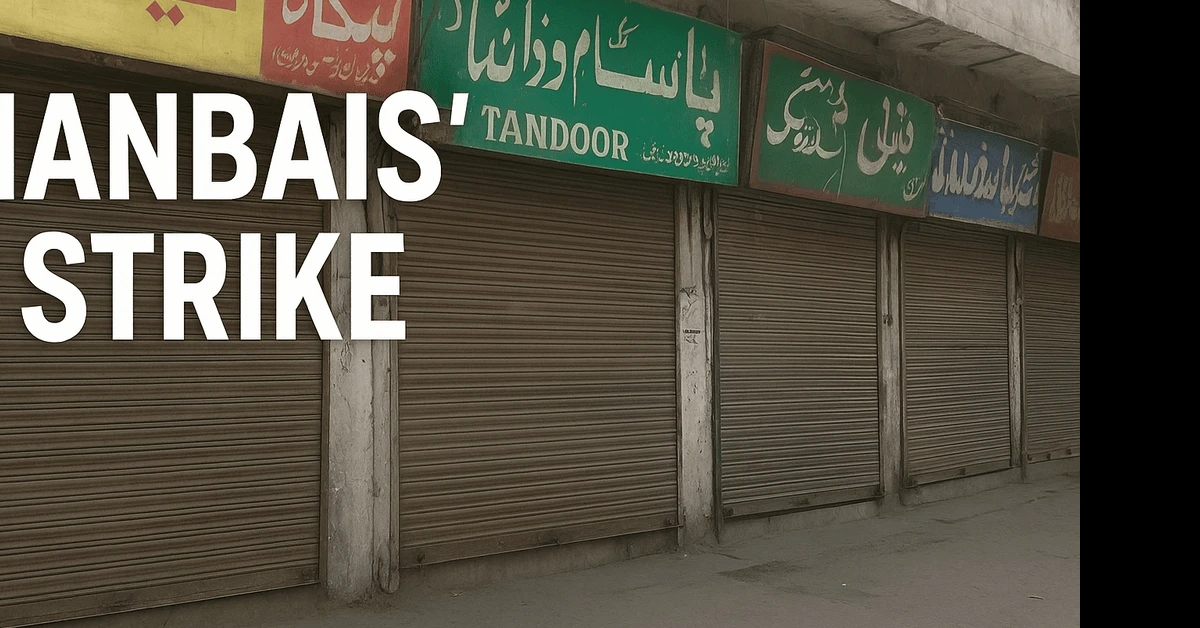
Nanbais’ Strike in Rawalpindi Shuts 21,000 Tandoors: Bread Crisis, Rising Costs & What Happens N...
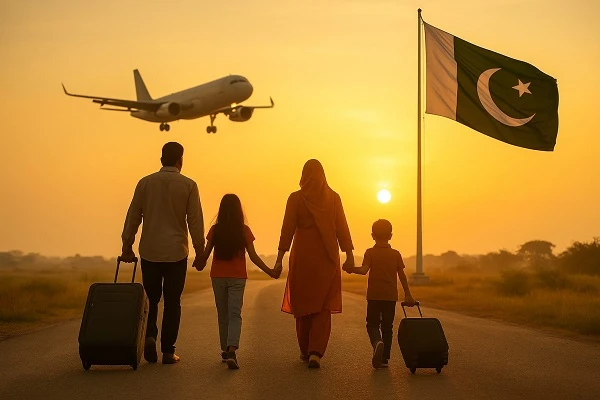
Why Everyone Is Leaving Pakistan — But These People Are Coming Back...
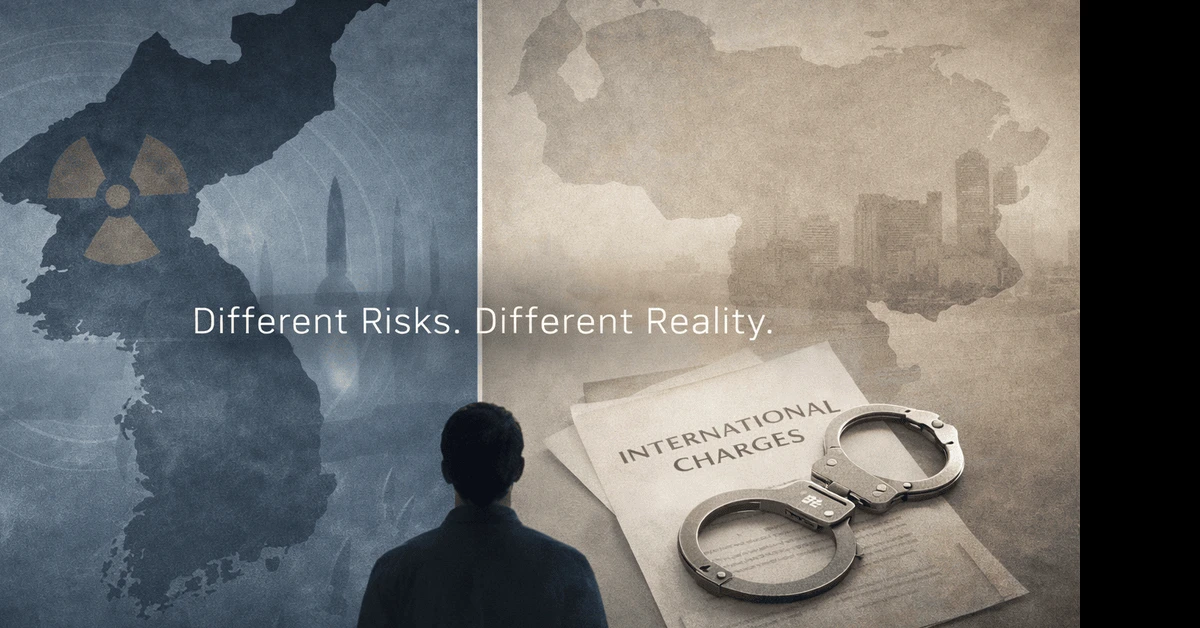
Why the U.S. Can Arrest Venezuela’s Leader but Cannot Touch North Korea’s Ruler...

The Post-Messi-Ronaldo Era: Who’s Really Carrying Football’s Global Popularity Now?...
